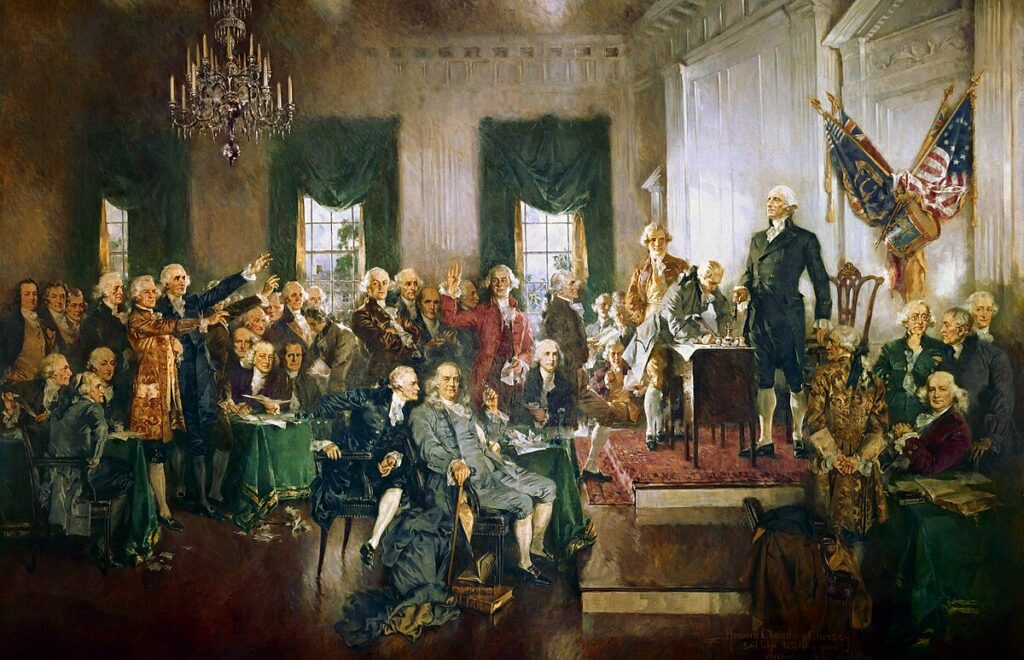The day after the massacre of Oct. 7th, American academia in large part stood with Hamas, or at least did not show any disdain or remorse for Hamas’s heinous actions. Even prior to any Israeli retaliatory action, college campuses across the United States were littered with pro-Hamas demonstrations. Many Israeli academics, especially those who would otherwise consider themselves as progressives, were quick to conclude that the underlying issue was an overall lack of information, leading them to take up the task of spreading the correct and true to life information about the attack; an endeavor they would call Hasbara or ‘explanation.’ But despite these efforts, anti-Israel rhetoric continued to proliferate throughout American academia, and what started as pro Hamas demonstrations quickly turned into blatant and unapologetic antisemitism.
These phenomena weren’t only outcast to unknown peripheral colleges but were spearheaded by the most prestigious of the Ivy League schools, those which until recently had a major Jewish presence. Dozens of student organizations in Harvard signed a public decree of support for Hamas; in the university of Pennsylvania, pro-Palestinian students were accused of chanting “We want Jewish genocide!”; in Cooper Union – a college in Manhattan – Jewish students were forced to lock themselves in the library in fear of an antisemitic mob that was trying to breach the doors. In the past few years, American academia has been littered with bureaucrats tasked with implementing standards of inclusivity and tolerance. Students, graduates, and college donors alike have been outraged by the fact that this push for tolerance and inclusivity has propelled their alma maters across the nation to forsake the safety of their Jewish students and allow for blatant antisemitism, support of terror organizations and outright calls for genocide.
In the weeks following the massacre, if there was any disillusionment within the Israeli Left, it was a gradual realization that their alignment with the global progressive movement was not as harmonious as previously believed. “The world’s Left has rendered itself irrelevant” proclaimed Prof. Eva Illouz.[1] Dr. Maya Tevet Dayan, an Israeli academic conducting research at the university of San-Diego, described constant antisemitic slurs, swastikas, violence in and around local synagogues, and ostracization from school faculty and student bodies. “I feel like 1939 came back for a visit,” said a counterpart in a similar situation.[2]
In a congressional hearing on December 6th, the presidents of Harvard, MIT and the University of Pennsylvania were asked whether calls for Jewish genocide did not violate the ethical code of conduct in the institutions they led. They proceeded to uncomfortably mumble scripted legal phrases and empty slogans of free speech; this of course representing institutions that have been systematically silencing any statements that have veered from their notion of political correctness for several years now. When the members of congress pressed for answers regarding the legitimacy of expressions of antisemitism on their campuses, they answered that it “depends on context.”
So where does this all stem from? The economic explanation of the introduction of Qatari funding doesn’t seem to be sufficient, as Qatar is not the main source of academic funding in the West. In general, I feel it is preferable to steer clear of the Marxist notion that all conflicts and disagreements stem from economic fluctuations. This is not to say that there is no effect to Qatari funding, but in order to reach a holistic point of view one should also look in other directions. It is also evident that there is an underlying current of antisemitism within Western society, which has surfaced opportunistically in this instance. It’s also clear that Muslims, who have migrated in large numbers to America, are often at the forefront of anti-Israel rhetoric and action. Knowing all this, it is important to ask how academia, the supposed house of enlightenment, tolerance, and critical thinking, is fronting demonstrations of hate on this level? How can it be that progressive professors are expressing jubilance and glee at the barbarism of Hamas, whose level of savagery could eclipse even that of the Cossacks in Russia?
In this essay, I will argue that these phenomena are not the result of a failure in public diplomacy (Hasbara), or a mistaken understanding of the American political situation. Rather, they are the expected outcome of profound and dangerous intellectual developments that have taken hold of Western academia over the past decades. The essence of my argument is that the moderate liberalism of the Western Left has been overtaken by a militant and corrupted form of progressivism, and that the hostility towards Israel is an inevitable byproduct of this process. This corruption would appear in the late twentieth century, when two radical streams of thought converged to create a chimera; a monstrosity to whom we have fallen prey.
The first of these radical approaches is Marxism. Although Karl Marx himself was in fact Jewish, and, as the famous cliché goes, a descendent of a great rabbinical lineage, his writings concerning Jews contained a blatant antisemitic rage:
What, in itself, was the basis of the Jewish religion? Practical need, egoism.
The monotheism of the Jew, therefore, is in reality the polytheism of the many needs, a polytheism which makes even the lavatory an object of divine law. Practical need, egoism, is the principle of civil society, and as such appears in pure form as soon as civil society has fully given birth to the political state. The god of practical need and self-interest is money.
Money is the jealous god of Israel, in face of which no other god may exist. Money degrades all the gods of man – and turns them into commodities. Money is the universal self-established value of all things. It has, therefore, robbed the whole world – both the world of men and nature – of its specific value. Money is the estranged essence of man‘s work and man’s existence, and this alien essence dominates him, and he worships it.
The god of the Jews has become secularized and has become the god of the world. The bill of exchange is the real god of the Jew. His god is only an illusory bill of exchange. [3]
But Marx’s personal antisemitism, which he shared with many of his disciples, was not the main issue here, or at least not the central point. To truly understand the issue at hand, we should concentrate on the sociological pillar from which all his works stem, as presented in the preface to his most famous work – The Communist Manifesto (1848): “The history of all hitherto existing society is the history of class struggles.” This statement implies three key principles, which encapsulate Marxist philosophy. First, society is not a harmonious structure but a system of conflicts and struggles. Second, the root of these struggles stems from economics: different classes battle over society’s material resources. Third, from these struggles emerges a necessary continual and linear chronological progression.
Historically, the most influential of these three principles has been the first. This principle embodies the legacy Marx bequeathed to his followers: every social structure is fundamentally a system for the exploitation of the weak by the strong, rather than being a cohesive, uniform entity or a benign and beneficial partnership. In stark contrast, the Bible – perhaps the most influential piece of literature in human history – opposes this principle from the outset. It begins with the most basic social structure, the family, and explicitly states that the strength of the family is derived from unity rather than domination: “And he shall cleave unto his wife, and they shall be one flesh” (Genesis 2:24).
In my book, Incorrect (“לא תקין”, Hebrew, 2022), I delve into the evolution of Marxist theory, a doctrine which had to face the profound reality that its founders were erroneous in most of their assertions. Marx, with overwhelming certainty in the ‘scientific truths’ of communism, allowed himself to predict a specific date for the impending world revolution. His correspondence indicates that he initially thought it would happen in 1849, but then progressively postponed this prediction, eventually settling on 1859.[4] Due to the fact that the world revolution did not end up happening in 1859 (or 100 years later) his followers were forced to update the theory. The precise trajectory of this development is not the focus of our discussion here. Therefore, a general statement will suffice: neo-Marxists emphasized the realms of culture and spirit as arenas of destructive social oppression. Their argument was that Marx was correct in asserting that capitalist societies are founded on evil, malignant, and presupposed oppression; however, he was mistaken in claiming that this oppression stems solely from economics and capital. According to followers of Marx in the 20th century, the realm of culture became so dominant in human life during the era of “late capitalism,” that the bourgeoisie exploited it to effectively undermine the ever-looming revolutionary threat. The capitalist brainwashing goes on, through television and cinema, with the purpose of concealing the horrific exploitation lurking behind the curtain and thereby avoiding the longed-for workers’ revolution.
Nearing the end of the 20th century, this school of thought started merging with postmodernism. The original postmodernists were far from advocating for a large-scale social uprising, but rather focused on an aversion to any monistic truth; being under the assumption that everything is relative, and all statements are only but subjective narratives. Therefore, they engaged themselves with games of deconstruction, while assuming intellectual superiority over monistic transcendental thinkers. What allowed for this fairly odd pairing were the works of Michel Foucault. Foucault’s postmodern thought did not in itself converge with Marxism, – Foucault was too clever for that – but his works and their subsequent interpretation facilitated the unholy birth of that aforementioned chimera.
Foucault, a relativist, did not believe in absolute truths. He saw Western thought as pursuing these truths and contended that, in their absence, human society is structured around power dynamics—or more precisely, the convergence of power and knowledge. After all, if there is no absolute truth, then knowledge itself becomes merely an expression of power, and, in fact, its most explicit and oppressive form.
For example, Foucault theorized that the medical jargon of his era, in addressing insanity, labeled certain individuals in society as deviants, mentally ill, and in need of clinical treatment. He questioned who has the authority to declare that a hospitalized person is “mentally ill” while another is healthy. Perhaps, he suggested, it might actually be the opposite. In the absence of objective truths, these distinctions become mere manifestations of power dynamics, subjectively defined by society and varying across cultures that change over time.
Foucault pointed out that there is more scientific literature focused on females rather than males; much more anthropological research centered around “primitive” societies rather than the more advanced Western ones, and so on. The mere categorization of otherness as an object of research had already in essence been a form of exerting power towards it. The power-knowledge dynamics were particularly relevant in his eyes when trying to understand homosexuality in society.
Foucault completely obliterated the distinction between what is considered healthy social functioning and oppressive power. The prison, for example, was a transcribing function, albeit somewhat intensified, of the underlying social functions like familial dynamics. Foucault described the prison as a slightly exaggerated “caricature” of society, a school lacking in forgiveness, and a gloomy workshop.[5] If we were to conjure up a society that would showcase less physical power and more lenient punishment, says Foucault, that would only be because the underlying power dynamics found new softer ways to entrench themselves in our lives.
Through the use of his sophisticated rhetoric, this attempt to obfuscate the difference between modern family life and the life of a prisoner in solitary confinement is sure to shock those who have experienced both. Indeed, Foucault repeatedly described the “bourgeois family” as the fountainhead of all that is corrupt and as the epicenter of forceful oppression.[6]
And so, in Foucault’s eyes, all social institutions, be they familial, scholarly, punitive, or economic, are based on certain perceptions of human nature and the societal superstructure surrounding it. Due to the simple fact that there is no objective basis for any of the perceptions, they are all merely different ways of exercising power. No other thinker had entrenched power as the underlying idea fueling society as much as Foucault did. The problem was, of course, that he essentially described an absolute principle in a world he himself described as devoid of such principles. How could Foucault reveal to us the absolute truth in a world where doing such a thing is impossible?
Marx differentiated between science, which he described as a school which strove towards the objective truth, and ideology, which tries to hide the truth in aims of perpetuating existing power dynamics. Foucault disregarded this difference, as if there was no truth and there was no science; in the lackluster of science and objectivity one should focus on discourse, as there is no objective truth hiding behind it. Discourse is not transparent and it is not neutral; it is conjured up, produced, organized, and distributed all under the vise of power dynamics.
Foucault illustrated how oppression occurs through the most subtle means, using tools of thought that masquerade as neutral, in places where no one before him thought to look for oppression: in medical guides, geographical atlases, anthropological documentation, and so on. He occasionally even claimed that from this perspective, it becomes apparent that Western democracies are, in fact, more oppressive than the tyrannies of the Middle Ages, or even the totalitarian states of the 20th century.[7]
But Foucault was so sophisticated that neo-Marxists and post-Marxists had a hard time using his doctrine in its original form. Unlike the original Marxists, he almost never describes concrete oppressors who premeditate oppression with the aim of reaping its benefits, but instead tends to use obscure statements:
Power is everywhere; not because it embraces everything, but because it comes from everywhere… The source of power relations and their overall matrix are not in a binary and all-encompassing opposition between rulers and the ruled… Let’s not look for the general headquarters that presides over its rationality.[8]
This is not a statement explaining that oppressors initiate power structures unconsciously. The argument here is a lot more radical. From Foucault’s philosophy comes the notion that exertion of power and its oppressive uses are the most basic and simple facts of human life. The power in essence grows within itself, and although uninitiated, it is unavoidable. The discussion surrounding power/knowledge is fundamental in essence and is not a class based conspiracy. Power/knowledge does not manifest itself in a simple class-based way: for example, the discourse attempting to restrict sexuality paradoxically stimulates the very sexuality it aims to control, invigorated by the increasing focus on the body and its pleasures.
Through these insights, Foucault raises the question of what can we do, if anything, in the face of oppression? In a world without any absolute moral truths, can we justly condemn someone for using power? Can we ethically aim to disperse this power and dismantle oppression? And if we do somehow succeed in dismantling a certain type of discourse, wouldn’t it immediately be replaced by another equally oppressive form of power? “Everything is dangerous,” Foucault wryly notes, and suggests looking into what “the main danger is”.[9] It then becomes apparent that the only stance that would align with Foucault’s theory is the absolute dismantlement of all order, or in fact, anarchy. Since all order is oppressive, it would only be logical to continually destroy every form of it.
Fittingly, Foucault exhibited an attraction towards extreme violence, and when the Islamic Revolution broke out in Iran, he enthusiastically encouraged the revolutionary zealots.[10] But as we’ve already noted, he was far too sophisticated to commit to a crusade against any particular form of oppression. He understood all too well that his theory barred any such enlistment. Yet, Foucault consistently gave the impression that this was exactly what he was doing, without explaining the value in it. Thus, while Jürgen Habermas labeled Foucault a “neo-conservative,” his admirers could argue that he was actually “advancing the Marxist project by other means.”[11] Occasionally, definitive and seemingly Marxist statements were extracted from Foucault, such as: “Everything can be deduced from the general phenomenon of bourgeois class domination.”[12] However, he tended to resort to more ambiguous statements.
Discourse Rather Than Truth, the Weak Rather Than the Righteous
Foucault’s many followers did not usually follow his sophisticated ambiguity. They tend to incorporate his insights into the old Marxist doctrine, the one that divided the world into the oppressed and their oppressors, the struggle between the agents of darkness and the agent of light. This postmodern approach set aside the dull pessimism of traditional narratives, aiming instead towards passionate social activism. Pluckrose and Lindsay referred to this new phase as “applied postmodernism.” Linda Hutcheon wrote about the difference between postmodernism and postcolonialism: “Both ‘posts’ use irony, but the postcolonial cannot be satisfied with irony alone”; it leads to political activism. Foucault’s students thus did not stop where he did, and explicitly spoke of the need to fight for freedom and against oppressive discourse.[13]
This coupling of Marxist class-based thought and postmodernism created serious theoretical problems, but it also gave its proponents a sense of moral superiority and ideological fervor. This is also what characterizes current progressive theorists: a deep disdain towards the concept of truth on one end, and a sense of moral certainty in the war against the agents of darkness on the other. It’s difficult to pinpoint this war in reality itself, as reality lacks an independent existence, and therefore we’d be better off looking for it in the realms of discourse, language, and culture. All this is naturally very flattering to the postmodern intellectuals: not only are they the only ones that truly understand what is going on in the world, but the arena where this war is taking place is their own. The field of discourse is meticulously combed to eradicate ‘micro-aggressions’: seemingly small and innocent expressions that are, in fact, agents of glaring oppression. The proletarians are no longer the real heroes in the battle against oppression; instead, it’s the intellectuals. Oppression is no longer focused on the sweatshops, but rather in the newspapers, books, movies, and the intellectual journals. The proletariansProletariat are no longer the real heroes in the battle against oppression; instead, it’s the intellectuals.
As an example of these processes, one can examine a striking text published by progressive students in the United States. Heather Mac Donald is a conservative author and thinker, often writing against the accusation of murderous racism in the police force. In 2017, students at Claremont McKenna College attempted to prevent her from speaking on campus. When it was argued against them that they were infringing on free speech and the pursuit of truth, black students responded by writing a manifesto:
“The idea that there is a single truth—‘the Truth’—is a construct of the Euro-West that is deeply rooted in the Enlightenment…. This construction is a myth and white supremacy, imperialism, colonization, capitalism, and the United States of America are all of its progeny. The idea that the truth is an entity for which we must search, in matters that endanger our abilities to exist in open spaces, is an attempt to silence oppressed peoples.”[14]
If the very thought that truth exists has led to horrors like “colonialism and the United States,” then there is no point in seeking the truth, and freedom of expression consequently has no value. The actual reality is of no importance because there is no truth in the world; the concept of truth itself is, supposedly, a “Euro-Western construction,” an illusory tool designed to deprive oppressed minorities of their narrative. In the absence of the possibility for discussion or rational clarification, the oppression of the weak by the strong is an axiom that cannot be proved – furthermore, there is no need to prove it.
How does all this lead to antisemitism? As early as the 1990s, Daniel Farber and Suzanna Sherry exposed antisemitic presuppositions emerging from critical theory in American academia. If Jews are successful, then they are oppressors; ‘strong is wrong.’ Critical theorists reject any attempt to explain the Jews’ success by means of hard work, dedication, and education. Assuming there is no truth, that no culture is better or worse than any other, and that society is entirely built upon coercive power dynamics, such explanations for success are dismissed as weak excuses for exploitation.
Statistics dating as far back as the 1970s show that the average household income of a Jewish family was 72% higher than that of the average family in America. Although many universities capped the number of Jewish students and faculty up to the early 1960s, by 1975, one-fifth of professors in elite American universities were Jewish; 7 times their proportion in the general population. By the end of the twentieth century, one quarter of America’s wealthiest were Jewish, and Jews’ average household incomes were already double those of the general populace.[15] In the eyes of radical progressives, these statistics revealed a new reality: once we Jews became a minority that had achieved prosperity, we moved from being the oppressed to becoming the oppressors. When modern progressives divide humanity entirely into the white oppressors and the non-white oppressed, and success becomes synonymous with ‘whiteness,’ the considerable societal success of Jews leads to their being perceived as ‘super-white.’
The historical Jew started being legitimized at the exact moment where the concurrent Jew began being portrayed as a monstrous being. Halos are retroactively placed on the head of the “diaspora Jew” because he was the oppressed: a repetitive victim of persecution, genocide, and ethnic cleansing. This Jew’s evil counterpart is thus the concurrent Jew: the achiever, entrepreneur, and the Israeli Jew proud of his country and its achievements. Only in such an intellectual climate can the Palestinian academic Edward Said declare himself as the “last Jewish Intellectual”[16]—when his express meaning was to say: I am now the only one who authentically portrays true victimhood, when the victim has become a champion of moral superiority.
This hatred is focused on Israel not only because it is successful and a “winner”; Israel isn’t simply a successful state, it is a successful nation-state, and thus it triggers the progressive Left’s oppression receptors. Strong national identity is perceived and understood as the root of all evil, and Israel is the state that is most commonly identified with a strong particular national identity.
One should mention here that what is infamously called “identity politics” is not really a driver towards collective identity. As we can see, there is no praise from its proponents for American, French, or British national identities. Instead, what we observe is a repetitive association with terms like “toxic masculinity” or “colonial whiteness.” Under the guise of identity politics, its followers reserve praise almost solely for what are perceived as oppressed minorities, and only as long as these minorities maintain their status as oppressed. In this view, collective identities, in any form, are not a positive aspect of one’s life; rather, they serve as a weapon. The only thing that matters is the thin but critical line between the oppressed and the oppressor; the moment a minority ceases to be a minority, transforming into a majoritarian hegemony as happened with the Jews in ’48, it will automatically become the oppressor, and it too will need to be dismantled. In a binary world where, as Alain Finkielkraut famously noted, there are only “two archetypes – the Nazi and the victim,”[17] it becomes clear on which side of the equation Israel should be placed in.
These themes have also started appearing among Jewish scholars, who have joined in reiterating anti-Israeli and anti-Jewish claims. Judith Butler, a Jew and a prominent theorist of queer theory, stated in 2006 that “understanding Hamas and Hezbollah as social movements that are progressive, on the Left, and part of a global Left, is extremely important.”[18] This absurdly foolish statement is so detached from reality that it could only have been formulated within an academic setting that is detached from any substantive, realistic, and meaningful thinking.
In this distorted world, arguments that Jews in Israel commonly present in favor of their people and state—such as the high proportion of Nobel Prize laureates and the dazzling technological achievements of the “Start-Up Nation”—are paradoxically perceived as arguments against the Jews. In a world lacking objective standards of success, the success of Jews is interpreted as evidence of a repressive and dominant conspiracy, rather than as an expression of communal excellence.
From here, it was a short step to claims like that of Derrick Bell, who long ago declared that while antisemitism is indeed terrible, not every negative remark about Jews is antisemitic, even if it is incorrect. Bell called on African Americans not to oppose the antisemitic black leader Louis Farrakhan, head of the Nation of Islam. He also criticized the many Jewish professors at prestigious universities such as Harvard, who support supposedly objective admission criteria that in reality preserve their special status and discriminate against other ethnic groups.[19]
These anti-Jewish motions have borne fruit: in the past few years, the proportion of Jewish students and faculty members at prestigious Ivy League schools has plummeted. This is due to these schools’ strict affirmative action policies that foster and favor historically oppressed minorities (notwithstanding Jews and other ethnic minorities, such as Indians and other Asian minorities). Historically, around 25% of Harvard students were Jewish; however, recent statistics indicate a decrease to between 10-14%. At Yale, the percentage of Jewish students has dropped from 33% to around 10%. Similar trends are observed at the University of Pennsylvania, which was once colloquially known as a ‘Jewish school’ among the Ivy League institutions.[20]
No wonder Jews have come to feel less at home in American academia: beyond all the theoretical and idealistic processes we’ve touched on, which indeed breed antagonism towards Jews and the state of Israel, there are simply fewer Jews on campus who can offer support and empathy. More Jew hatred and fewer Jews around—this is the vortex into which Western academia has fallen, particularly in its spearhead, the United States.
So, What Should We Do? Remind Ourselves
Israelis tend to attribute all their woes to a lack of adequate ‘Hasbara,’ and indeed there is always room to improve on that front as well, but it is not the most crucial of elements. During times where anti-Israeli sentiment is based upon a well-versed holistic ideology, ‘Hasbara,’ no matter how well-constructed and clear-cut, will never be able to dispel it. Thus, there is no reason to present facts to people whose philosophy tells them that there is no such thing as fact. Dr. David Barak Gorodetsky recounted his experience teaching a course on the Israeli-Arab conflict at an American university:
During my two years at the University of Chicago, I encountered a phenomenon that surprised me as a historian. I taught a course on the Israeli-Palestinian conflict and found that the students were not interested in concrete history—what happened in 1929, 1948, and so on. They were much more concerned with perceptions—colonialism, apartheid, ethnic cleansing—and resolving them. Once you have the category, the story is over.[21]
Everywhere I share these ideas, people in Israel immediately ask me, “So, what can be done?” The answer depends on the area. What can be done to fix American academia? Assuming that you and I are neither multi-billionaires, revered philosophers with a global reputation, nor President of the United States, the answer is: nothing. It’s likely that even if we were categorized in one of these three groups, the answer wouldn’t be much different. The culture of lies will most definitely collapse one day, as there is a limit to how many lies can be sold to so many people for an extended period of time, but there’s not much we can do to hasten that day.
What we can definitely do is to place warning signs around the ideological path leading to this ghastly academic antisemitism. Academic hatred of Israel is not a minor glitch; it is a necessary and natural product of the direction progressive thought has taken in the 21st century. Antisemitism is not prevalent among Jews in Israel, although it too can be found here and there; but those distorted ideas that prevail in American academia are quite prevalent here too, and against these, we definitely can do something. We need to remind ourselves and those around us that society is not a trap of oppression, that a nation is not an arena of class warfare, and that language is not a tool of suppression. When we remind ourselves and our loved ones that family, community, and nation are built on love and partnership, and that language is a means of communication and understanding, we will know that at least we have purified our immediate environment from the ideas that have corrupted the world.
This article was originally published in Hebrew in Hashiloach (04/2024). It was translated by Eitan Wachspress and edited by Shai Erez.
Photo Credit: SerGrey, from Bigstock
[1] Eva Illouz, “בתגובתו ל-7 באוקטובר, השמאל העולמי נכשל מוסרית ואינטלקטואלית” (In Its Response to October 7, the Global Left Failed Morally and Intellectually), Haaretz, November 2, 2023.
[2] Mia Tevet Dayan, “השנאה יצאה מהארון” (The Hatred Came Out of the Closet), Makor Rishon, November 5, 2023.
[3] Karl Marx, “On the Jewish Question,” Marxists Internet Archive, accessed [01.04.2024], https://www.marxists.org/archive/marx/works/download/pdf/On%20The%20Jewish%20Question.pdf, p. 19.
[4] Paul Johnson, “A History of the Jews,” translated by Guy Harling, Jerusalem: Shibboleth, 2022, pp. 332-333.
[5] Foucault, M. (2015). לפקח ולהעניש: הולדת בית הסוהר [Surveiller et punir: Naissance de la prison] (D. Yoel, Trans.). Tel-Aviv: Resling. p. 285.
[6] For example, Foucault argues, ” The family does not duplicate society, just as society does not imitate the family. But the family organization, precisely to the extent that it was insular and heteromorphous with respect to the other power mechanisms, was used to support the great “maneuvers” employed for the Malthusian control of the birthrate, for the populationist incitements, for the medicalization of sex and the psychiatrization of its non genital forms. ” (Foucault, M. (1978). The History of Sexuality Volume I: An Introduction (R. Hurley, Trans.). New York: Pantheon Books. p. 100.). See also: the same author, Madness and Civilization: A History of Insanity in the Age of Reason, translated by Aharon Amir, Jerusalem: Keter Publishing House, 1972, p. 188.
[7] Farber, D. A., & Sherry, S. (1997). Beyond All Reason. Oxford: Oxford University Press. p. 29.
[8] Foucault, M. (1978). The History of Sexuality Volume I: An Introduction (R. Hurley, Trans.). p. 93-94.
[9] Dreyfus, H. L., & Rabinow, P. (1983). Michel Foucault: Beyond Structuralism and Hermeneutics (2nd ed.). Chicago: University of Chicago Press. Afterword.
[10] Ibid., pp. 147, 149.
[11] Himmelfarb, G. (2003). “לספר כטוב בעיניך” [To Narrate as You See Fit]. In E. Weinrib (Ed.), פוסטמודרניזם והיסטוריה [Postmodernism and History] (p. 48). Tel Aviv: The Open University of Israel.
[12] Foucault, M. (1980). Power/Knowledge: Selected Interviews and Other Writings (C. Gordon, Ed.). Brighton. p. 100.
[13] Pluckrose, H., & Lindsay, J. (2022). תאוריות ציוניות: כיצד אקטיביזם אקדמי הפך את הגזע, המגדר והזהות לחזות הכול, ומדוע זה פוגע בכולם [Cynical Theories: How Activist Scholarship Made Everything about Race, Gender, and Identity – And Why This Harms Everybody] (E. Shpizer, Trans.). Jerusalem: Sifriat Shivoley.
Hutcheon, L. (1991). ‘Circling the Downspout of Empire’. In I. Adam & H. Tiffin (Eds.), Past the Last Post: Theorizing Post-Colonialism and Post-Modernism (pp. 168-171). London: Harvester/Wheatsheaf.
[14] Mac Donald, H. (2018). The Diversity Delusion. New York: St. Martin’s Press. p. 17.
[15] Farber, D. A., & Sherry, S. (1997). Beyond All Reason. Oxford: Oxford University Press. p. 57. Rosenak, A. (2023). זהויות מתנגשות א [Conflicting Identities A]. Jerusalem: Carmel. p. 205.
[16] Finkielkraut, A. (2005). “מכבש הדמוקרטיה האירופית” [The European Democracy Crisis]. Tchelet, 19, p. 28.
[17] Alain Finkielkraut, “בשם האחר” (In the Name of the Other), *Tekhelet* 16, 2004, p. 43.
[18] Butler, J. (2006). Remarks from a lecture at UC Berkeley on the war between Israel and Hezbollah.
[19] Parver and Shari, pp. 44, 58.
[20] Rosen, A. (2023, April 19). Ivy League exodus. Tablet.
[21] David Barak Gorodetsky, “האנטישמיות באמריקה עשויה להעיר את יהודי ארה”ב מחלום ההשתלבות הליברלי” (Antisemitism in America May Awaken U.S. Jews from the Dream of Liberal Integration), *Makor Rishon*, November 5, 2023.








